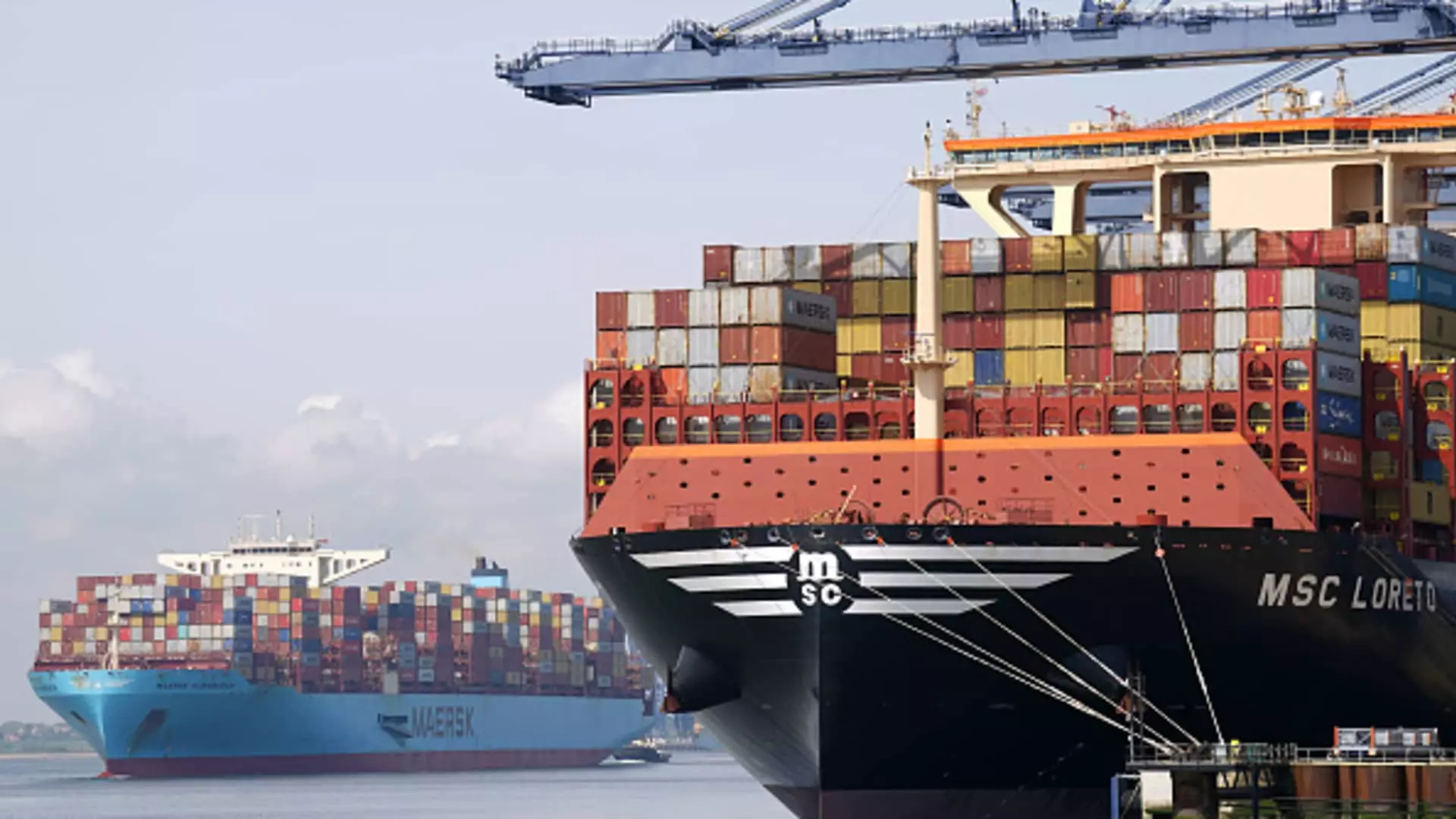As we step into the first-quarter earnings season of 2025, investors are met with a looming cloud of uncertainty that bears striking resemblance to a financial storm brewing on the horizon. Central to this landscape are the tariffs instituted under Donald Trump’s administration, which have taken on a life of their own—far exceeding the initial concerns imagined during their inception. With duties reaching sweeping proportions and policies subjected to unsettling fluctuations, the economic reality is challenging to navigate for both corporate giants and small businesses alike.
Negotiations with the European Union and the United Kingdom to amend the exorbitant 25% and 10% blanket tariffs represent only one part of the harrowing scenario. Despite widespread speculation about easing trade tensions, the precarious dialogue seems to invite more apprehension than relief. Meanwhile, the distance between Washington and Beijing grows wider, with potential repercussions that extend far beyond bilateral relations, sending shudders through global markets.
Major Players on the Frontline: LVMH and ASML’s Dire Predictions
We’ve already begun to see early indicators from Europe’s major players, with LVMH—a titan in the luxury goods sector—warning that sectors such as beauty and wines might be particularly susceptible to a downturn. This shift in consumer sentiment among “aspirational clientele” could not only dampen revenue but also reflect a broader economic malaise where luxury is deemed non-essential amid fiscal uncertainty.
In a parallel revelation, the Dutch semiconductor giant ASML cautioned that the imposition of tariffs has “created a new uncertainty” around demand—a reality that complicates its operations in an industry already hamstrung by supply chain challenges. Both companies provide a harbinger of tough times ahead, a bellwether for how far-reaching the tariff implications may stretch across various sectors.
Maersk: The Ocean’s Pulse in Choppy Waters
As we move past luxury goods, we must turn our attention to Maersk, a company that epitomizes global trade. Scheduled to report on May 8, Maersk’s shares have witnessed wild fluctuations aligned with the tariff news cycle, embodying the anxiety haunting investors. Expected first-quarter earnings before interest, depreciation, taxes, and amortization (EBITDA) hovering around $2.3 billion—down from $3.6 billion in the previous quarter—showcase the strain that tariffs have imposed on shipping and transport sectors.
Maersk has rightly condemned the current tariff landscape as “significant” and detrimental to global stability. The uncertainty about how various countries will react is a potent reminder that we are playing a high-stakes game of economic chess. As this state of flux continues, those reliant on international trade are left fumbling in the dark, battling not just for profit, but survival in a fraught marketplace.
The Energy Sector: Shell’s Uphill Before May 2
Shifting to the energy sector, Shell’s impending first-quarter report on May 2 promises to share sobering insights into an industry caught in the crosshairs of tariff related turbulence. While Shell has pledged to bolster shareholder returns and streamline operations, it has already had to lower its liquefied natural gas (LNG) production outlook due to unforeseen maintenance issues.
Analysts at Hargreaves Lansdown present Shell as a model for efficient capital allocation, suggesting stability amidst chaos. However, the reality remains that market volatility fueled by tariff dynamics leaves even well-prepared firms teetering on the brink of unpredictability. With adjusted earnings projected to decline sharply, the question remains: how will Shell navigate a rapidly evolving landscape where external market forces appear intent on destabilizing its operations?
Automotive Turmoil: Volkswagen in the Eye of the Storm
Volkswagen is another corporate heavyweight grappling with the dire consequences of tariffs. Facing a new 25% charge on all foreign cars entering the U.S. market, the company’s profits may be curbed, particularly as it appeals to American consumers while relying on European parts. VW’s anticipated first-quarter revenue surge contrasts with the ominous shadow cast by tariff policies. Although analysts project a slight dip in earnings, this juxtaposition exemplifies how growth can be overshadowed by an unfriendly political climate.
The mental gymnastics required to gauge the market’s reaction—consumer panic buying or slumping sales—echoes broader concerns about the automotive sector’s foothold in an economy riddled with uncertainty.
Pharma under Pressure: Novo Nordisk’s Upcoming Challenges
And then we have the pharmaceutical juggernaut Novo Nordisk, with its eye on the impending fallout from potential tariffs on critical drug imports. As the U.S. has opened inquiries into how pharmaceuticals impact national security, the prospect of tariffs looms large—threatening the lucrative gap between production and sales that has made these treatments incredibly profitable. The upcoming results on May 7 could very well dictate how Novo Nordisk pivots, leveraging its U.S. manufacturing capabilities while preparing for an unpredictable future.
In this era of heightened geopolitical tensions, navigating financial landscapes has become paramount. The corporate world stands not just to be affected by luminaries like the Trump administration; broader questions about international goodwill and trade relations taint every sector under examination.

Leave a Reply